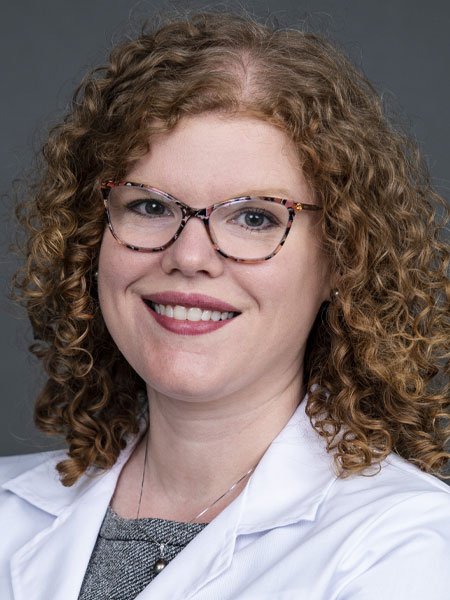In August of two thousand twenty two, I was having really severe liver pains, like, kind of lightning bolt that was just wasn't right. You know, something was really really wrong, and it's really scary to have to go into the unknown, knowing that something is wrong.
Baptist was the closest place to my house. They said that I needed to get a CT scan. My liver was the entire size of my chest, and it was nothing but tumors.
Alex has metastatic colon adenocarcinoma.
So this is a cancer that started in the colon, and then spread to another organ, in Alex's case, to his liver. So this is a a stage four cancer or a cancer that moved from one place through the bloodstream and landed in another place.
She arrived in my room and told me that she would be my oncologist and immediately took hold of the situation.
She empathized for, you know, being so young, thirty four, with colon cancer that had metastasized in a very limited timeline.
She'd just gone to a conference that involved the, the drug that essentially saved my life.
You're continually learning in oncology, and that's a really important piece of being able to deliver that care to the patient that's sitting in front of you. We also do have a very active research department, so we try to bring trials here for patients. So when, you know, there's a question, is there something better out there than the current standard of care? Then, a lot of times clinical trials will be developed to try to answer that question. At Baptist, we're fortunate to have a robust research department to try to bring those trials and those potential new therapies to our patients.
She got my regimen started immediately and so I think it was about six or seven treatments in when she had me re imaged and I mean my liver, again, you go from looking like a stone wall here in Kentucky to what happened, like, is that my liver? It's actually the size it's supposed to be.
Fortunately, he had a really remarkable response to his initial treatment, and so he was reassessed by a few additional specialists and underwent a surgery.
He subsequently had a second surgery, and now he's back on chemotherapy.
I was undetectable for cancer for three months after almost dying. The fact that I'm still sitting here is remarkable. Not know that her doctor Jackson, I have a lot of respect for her. I I don't think I'd be alive without her.
Alex was very young at the time of his cancer diagnosis. And, so I think it's important for patients to be aware, you know, cancer can strike even in your twenties or your thirties. And so if you have a symptom that you're worried about, you know, it is really important to go and see your doctor and bring that up.
This is hard.
It takes it out on you mentally, takes it out on you physically.
There's a lot of grief that comes along with it.
Taking a philanthropical approach to combating this disease is the best use of my time that I have left. It doesn't take much to go and get screened, but it takes a lot to fight cancer.
Alex has done just a really, you know, wonderful job of committing to the cancer treatments. My hope as a cancer oncologist is that I'm helping Alex to live that best life.
You realize what's important and what's not important. My wife and my stepson are definitely the two most important people in my life.
It's a bit ironic to have to go through the most difficult thing in your life to find out that you're the happiest in your life.
I've had options to go other places and I don't want to. If you choose Baptist Health, you are choosing the best in health care that you can get.


